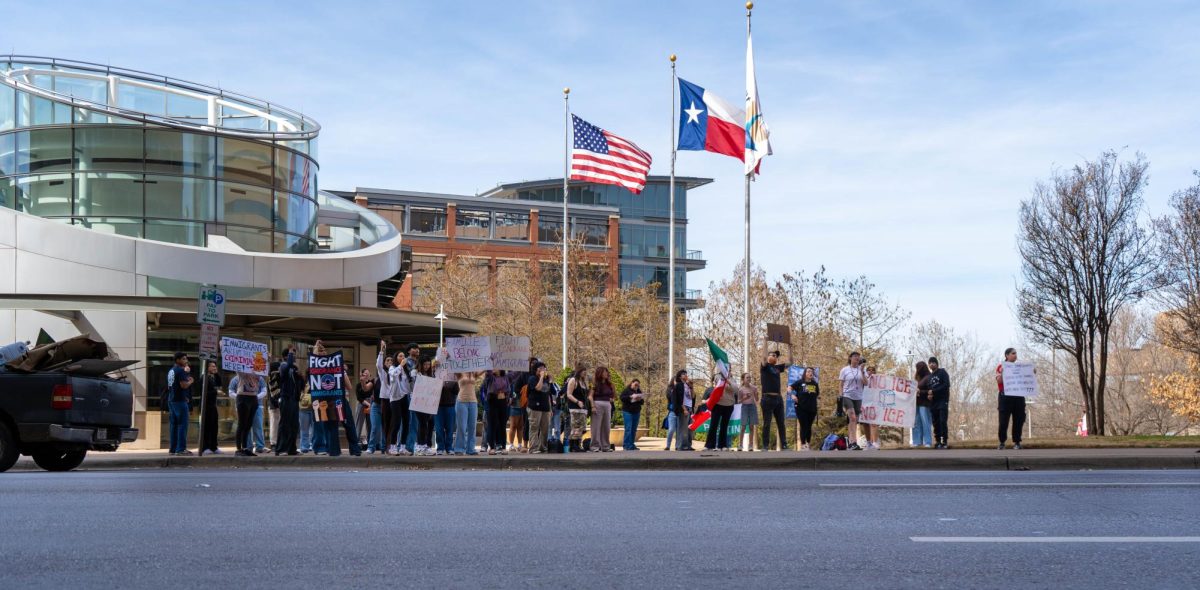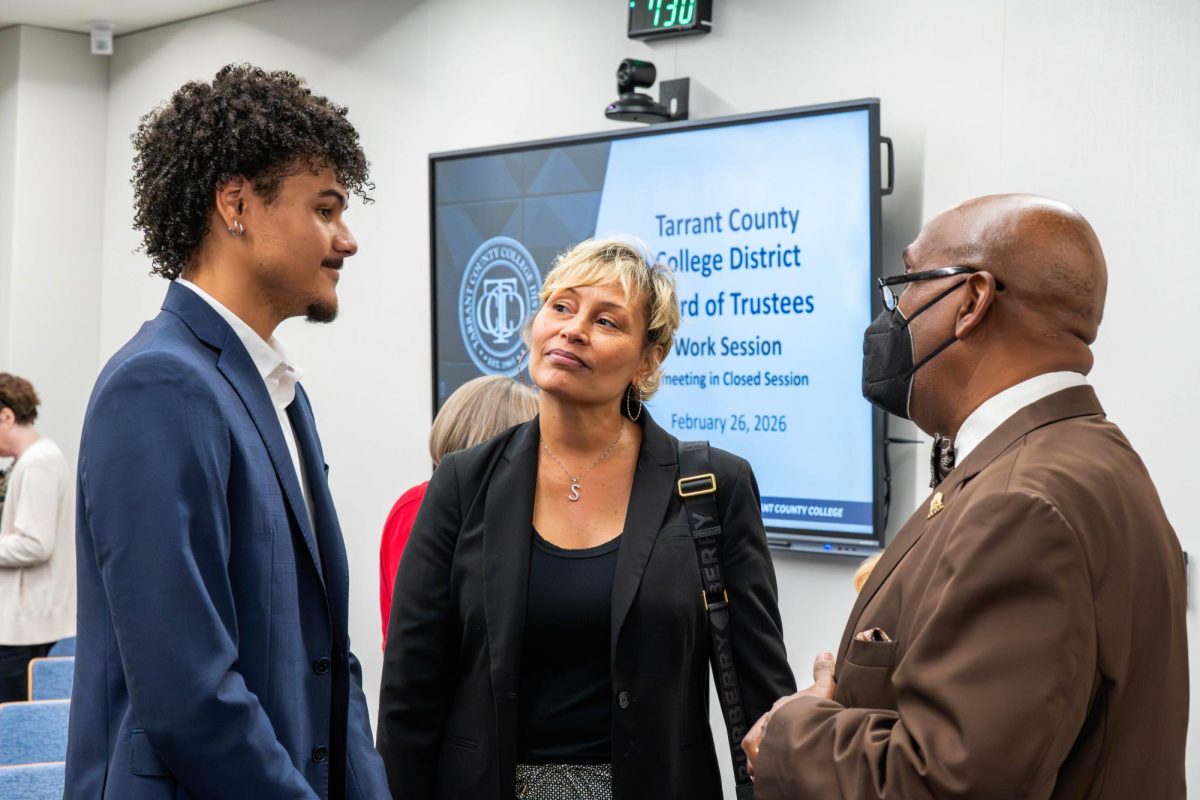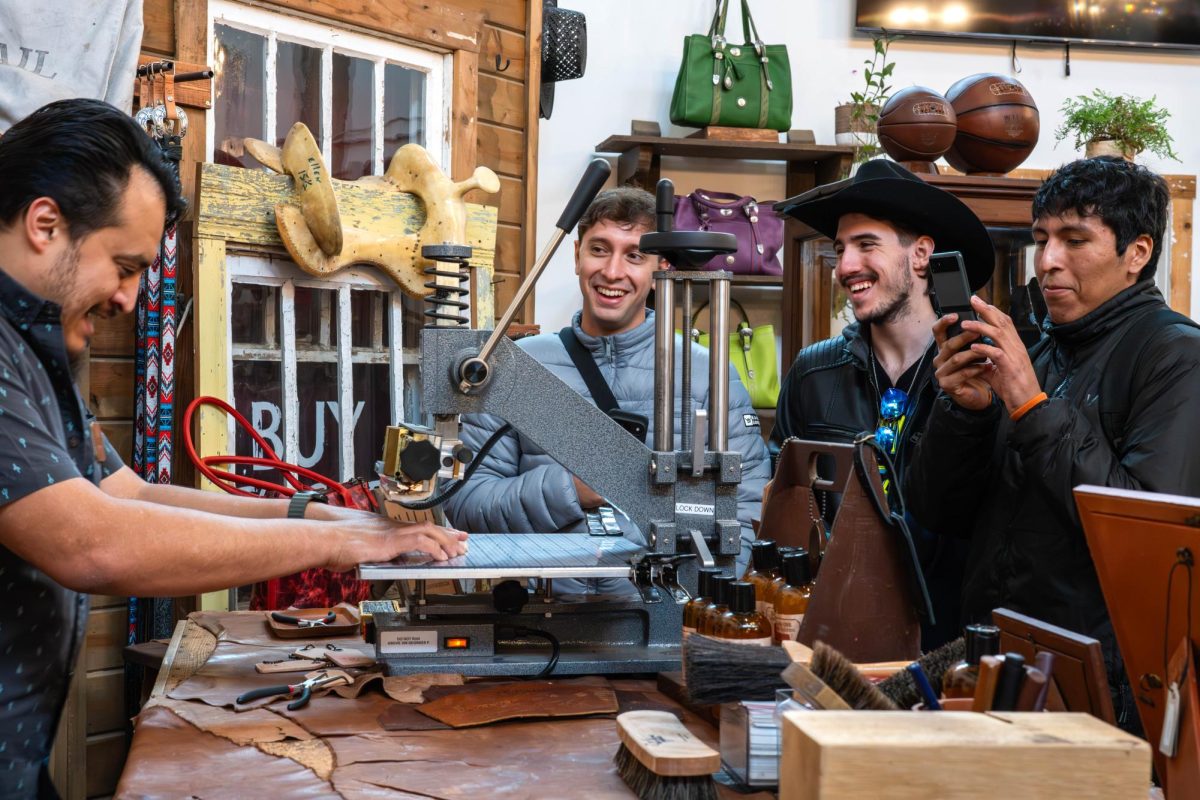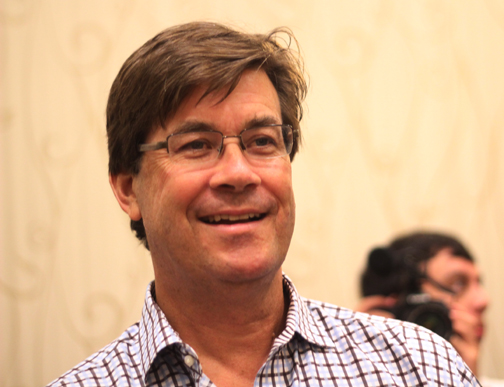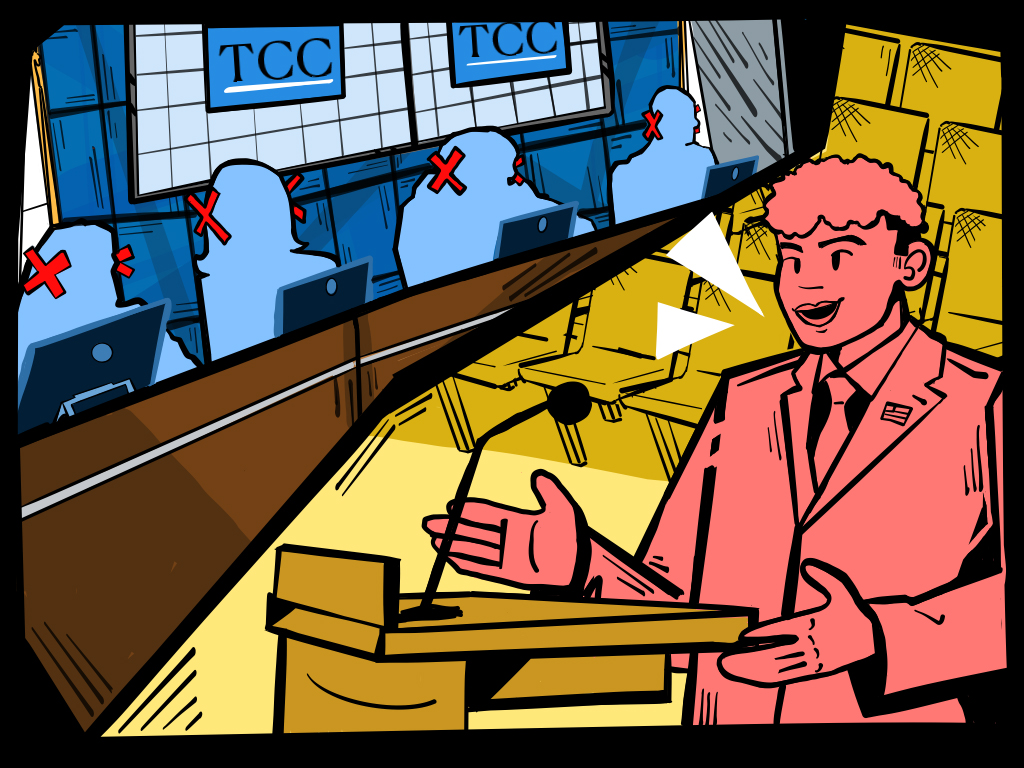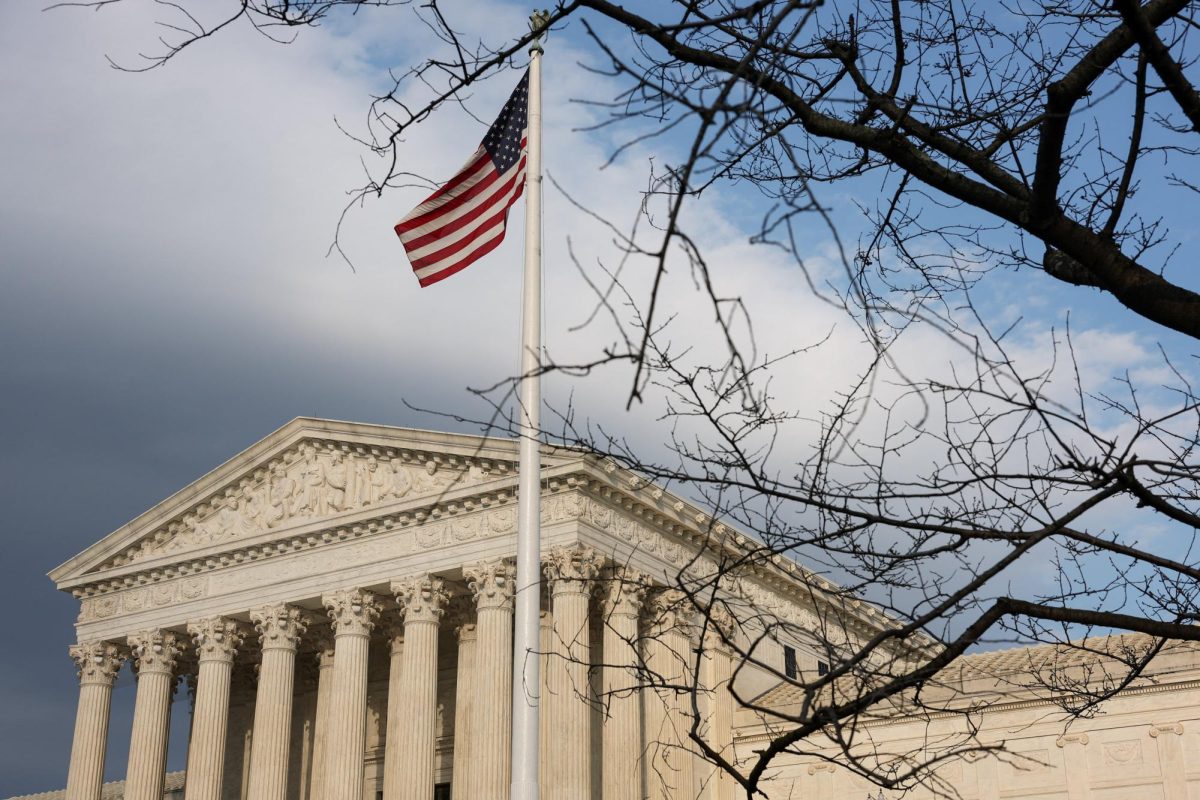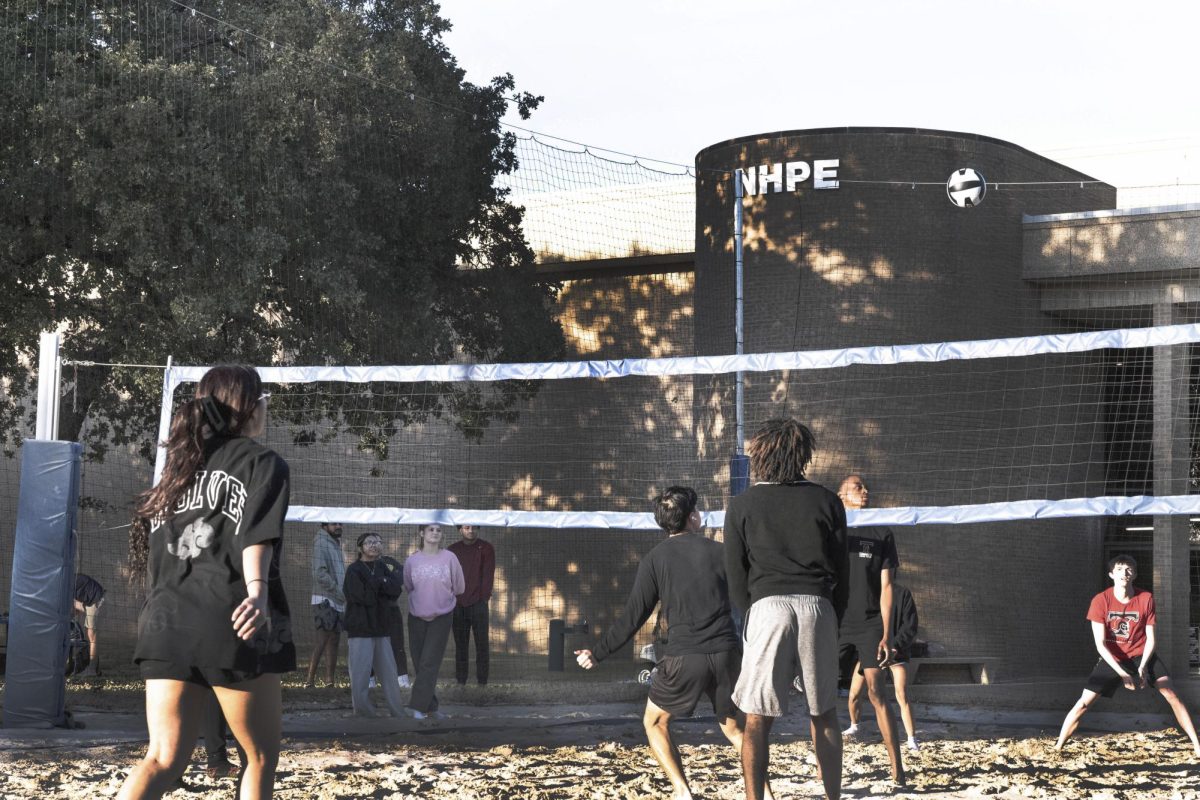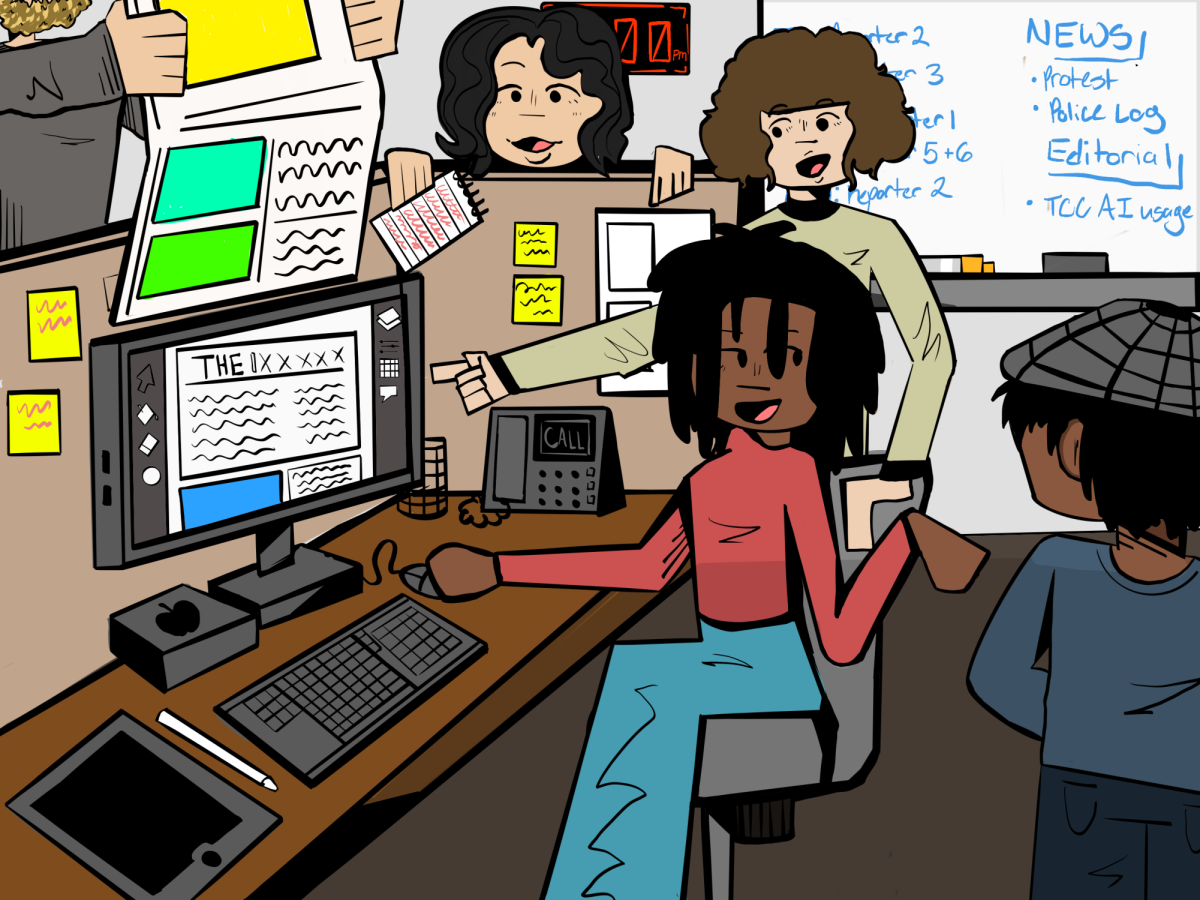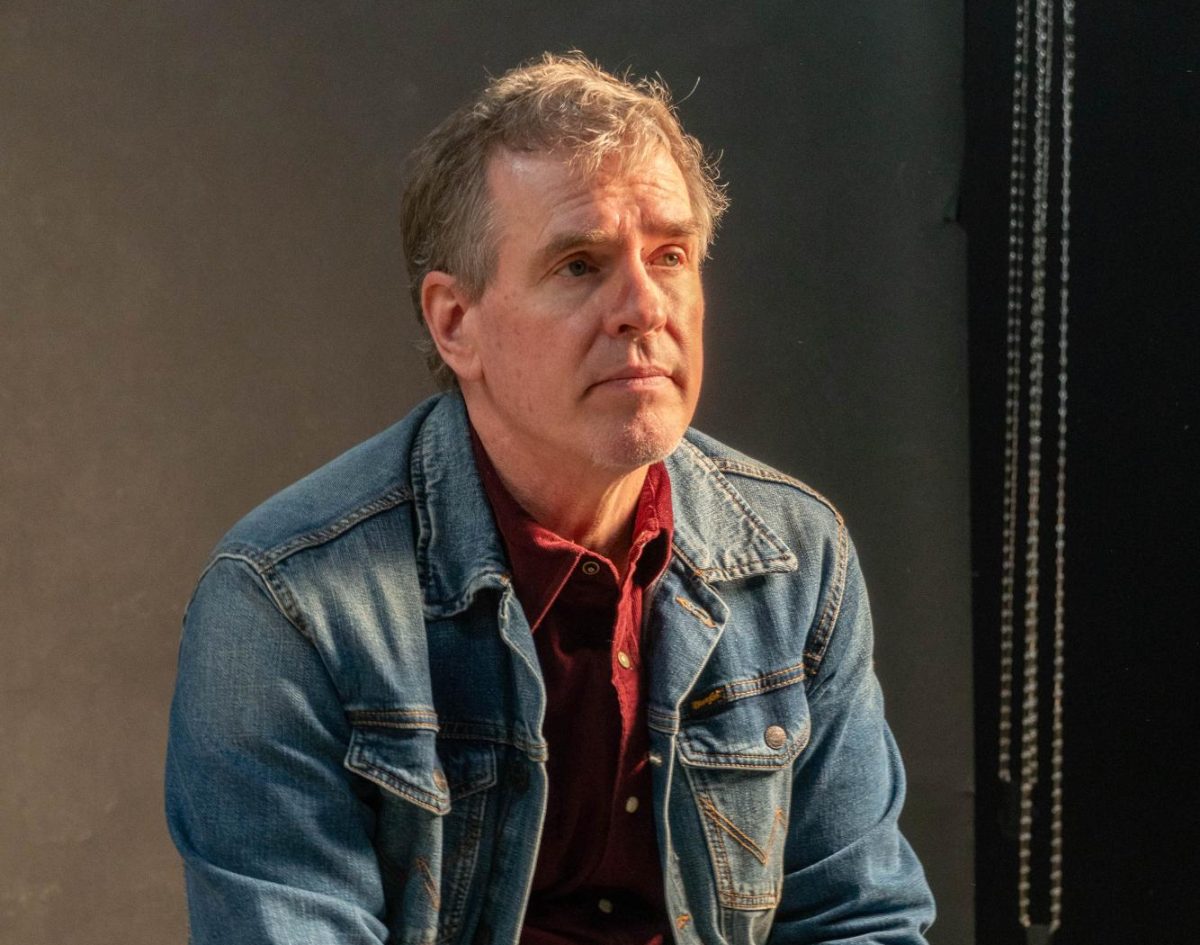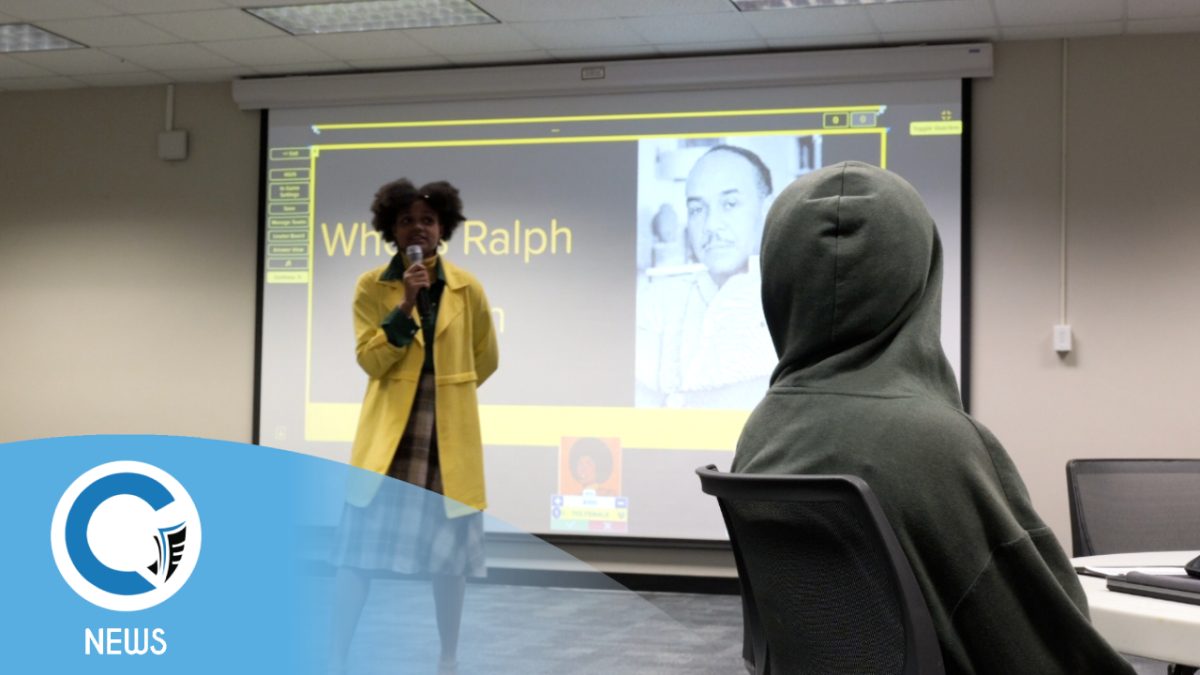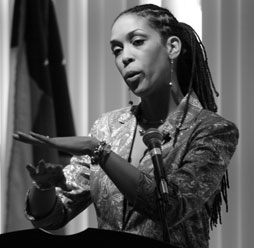By André Green/se news editor
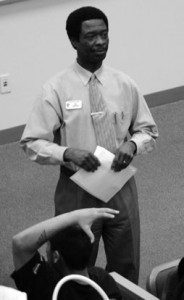
Affectionately known as “The African teacher,” one SE government professor has slightly altered his lessons to make changes in the political spectrum half a world away.
Ehikioya Agboaye generally teaches young men and women the importance of the U.S. Constitution, individual rights and the responsibilities of elected officials.
His new book Wakaman Politiks, seeks to address the pervasive corruption and lack of political knowledge by the people of his home country of Nigeria.
The book, written in Pidgin or broken English, is a variation of the country’s three main languages combined with English. He said writing in Pidgin allowed him to connect with a broader scope of
individuals because Nigeria has so many dialects.
Agboaye said he knew exactly what his people were going through. As a child he grew up very poor and witnessed firsthand the corruption and greed confluent in society.
“ When I say poor, I mean we were very poor in an area that was poverty stricken,” he said. “You could go to school, but at a certain point, you had to start to pay for it.”
Agboaye’s parents were uneducated but were determined not to let the trend continue.
“ There are six children in my family,” he said. “We were the first generation of my family to graduate.”
The more he looked at his surroundings, the more he realized a change was needed.
“ Corruption has always been something I have hated,” he said. “I vowed that I would somehow find a way to fight injustice.”
Shortly after the death of his father, Agboaye left the country and settled in America. He often dreamed of returning but found the political conditions in decline over the years.
“ I have only returned thrice,” he said. “Every time I went home, the corruption was worse.”
He said the people were in the dark about what was going on around them.
“ [One of] the problems in Nigeria is the need to separate customs and politics,” he said.
Nigerian customs are entrenched in respect for one’s elders. It is uncommon to see a younger person challenging an older person.
“ You would never see a young person questioning an elder in Nigeria the way you do in America,” he said. “Over there, if you question someone, you would receive smack across the head.”
Agboaye wants his book to let people know it is okay to question those in authority.
Respecting one’s elders is foolish when it comes to politics, Agboaye said.
When money is being taken out of the country, people need to be able to get answers from someone and not rely on archaic traditions, he added.
“ You need to be able to ask why,” he said. “You should be able to ask questions respectfully.”
He wants people to be able to stand up, recognize the rights they have and exercise them. Wakaman, he hopes, will be the lightning rod needed for change in Nigeria’s political and educational processes.
“ I want this book to start a revolution from the grass roots,” he said. “I want those who have left the country to, by word of mouth, spread information back to the people at home and force change.”
Agboaye said the timing of the release coincides with Nigeria’s general elections, April 17-21.
He wants the common man to be educated and make changes that are long overdue in Nigerian society. The revolution he seeks will not be accomplished by guns or violence, but by knowledge and education.
The middle class is the key, he said. That strata of the population consists of individuals on the high end of poverty who are educated and can inform those with little to no information and education on what is going on.
Agboaye said bringing about vast social and political change will not be easy, but he is ready to meet the challenge and so should Nigerians.
He cites Patrick Henry’s famous 1775 “give me liberty or give me death” speech argued before the Virginia House of Burgesses prior to the American Revolution. Agboaye said it serves as an illustration of what people can do when they have the will and determination to do what is right.
“ The Americans did it, and so can we,” he said. “It will not be easy, but it can be done.”
He does expect to meet a certain amount of resistance in Nigeria to the book, but not so much by the individuals in charge.
“ People will say I am looking from far away,” he said. “I am living the American dream, and I am trying to tell my people what to do from here, but that is not the case. I use these examples based on my
American experience. We are still a learning democracy.”
Agboaye wants to be involved in Nigeria’s change but wants his book to gain momentum. Then he hopes to return home to huge rallies and join the action.
“ I want to launch the book in Nigeria and if we can get this on track, I will run for office,” he said. “I will run for any office, even street sweeper, if my people elect me. I just want to do what I can.”
Agboaye’s daughters recently returned from Nigeria and expressed their dissatisfaction with the country. They told their father they did not desire to go back because the country was in such a state of flux.
“ She told me ‘you all messed it up and then ran away to come over here,’” he said. “They suggested I go back and fix it.”
And that is what he trying to do.
Wakaman Politiks is available for purchase at www.visabooks.com for $13.
A book launching will be at Grace Community Church in Arlington, Saturday, April 7, at noon.

